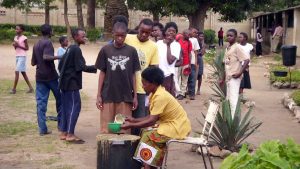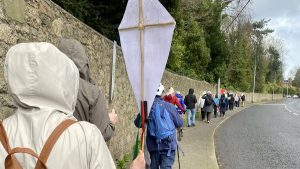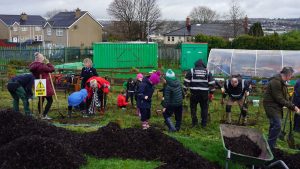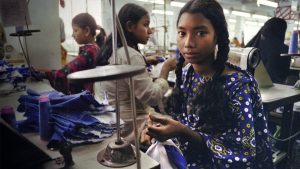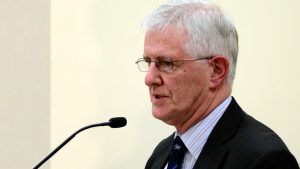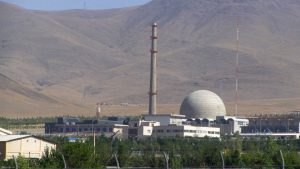Students becoming agents for change
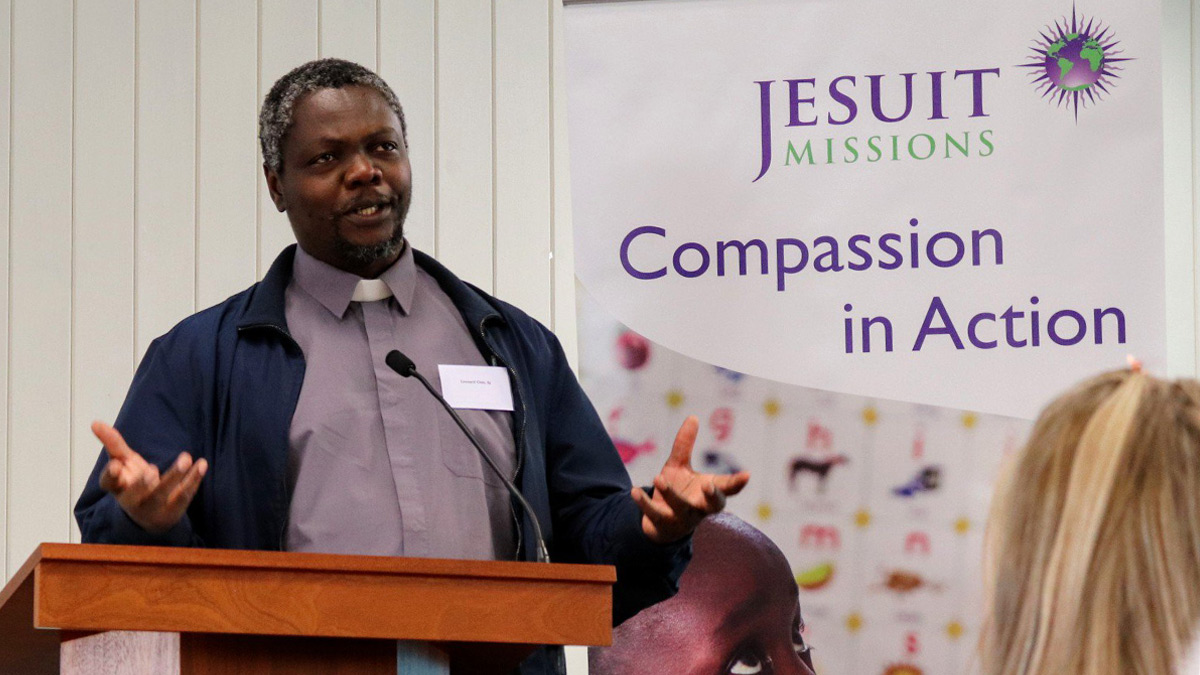
‘We are Change’ was the title of the Companions in Action Conference organised by British Jesuit Missions for young people attending Jesuit schools in London and Glasgow. The conference took place on Thursday the 26 September 2019 in the Hayes Conference Centre Swanick.
British Jesuit Missions says the aim of the day was to provide information and inspiration, statistics and skills that would help young people better understand the climate crisis and develop the expertise to become agents of change.
The conference began with morning prayer written and led by some of the students. It was followed by Richard Greenwood, Jesuit Missions Outreach and Communications Manager, who spoke of the vital role that young people, like Greta Thunberg have been playing in calling for decisive action on climate change. He challenged the students to use what they learned during the conference to produce mini-manifestos to take back into their schools. He urged them to find practical ways, both individually and collectively, to take action for change.
There were three workshops on offer throughout the day and they focused on both skills and strategies for action. Dr Shannon Philip of British Jesuit Missions explored the theme of ‘caring for our common home’ with the students through a discussion-based format, helping students to gain a better grasp of the climate crisis.
Philippa Bonella, formerly SCIAF’s Head of Communications and Education, looked at practical approaches to advocacy and campaigning.
Pat Coyle, of Irish Jesuit Communications, shared her insights and experience as a journalist with the young people. She helped them explore practical and effective traditional and social medial techniques that would assist them in communicating a social justice message. She used as a concrete example the story of Gonzaga student Will Robbins who had worked in Kabwe, a mining city in Zambia, as part of a school trip.
He was so moved by the plight of the orphans he met there that when he returned to Ireland he set up his own company selling hoodies to raise money to build a school for the orphans living in the most polluted city on earth. And she showed how Will promoted this social justice cause by giving interviews on traditional media and developing his own website. (Listen to Will’s story here).
The keynote speaker for the day was Fr Leonard Chiti SJ, Provincial of the Zambia-Malawi Province (see photo). In his talk, The Future of Food in Zambia: A Climate Change Warning, Fr Chiti spoke of how 20th-century farming techniques, with their intensive use of chemicals and water, have depleted nutrients in the farming land. He explained the role agri-business and multinationals played in promoting these unsustainable farming methods, into the 21st century, for their own profit. And he discussed how governments contributed to the farming crisis when short term goals such as re-election led them to work with the multinationals instead of challenging them.
He said Zambian farmers were encouraged to use cultivate and develop maize (not actually native to Zambia) to the extent that Zambians were almost completely dependent on it as a source of food, their staple diet. So these outmoded farming methods, allied with changing rainfall patterns that have resulted from climate change, are further impeding the ability of farmers in Zambia to feed their families. Many Zambians are reduced to eating one meal (based on maize) a day. And it’s the women and children who suffer most in this situation as the men eat first.
The model of agriculture in Zambia holds a stark warning for farmers in the developed world, he said, adding that new environmentally aware and sustainable strategies are needed to address this area of growing concern.
He did say there was some hope on the horizon however, noting that Jesuits have been working with government offcials, developing new agricultural strategies and looking at new technologies that might address the current climate challenges.
In the afternoon students watched a weblink with Fr Makasa Chikwamo SJ, the Director of the Jesuit Centre for Ecology and Development in Kasungu, Malawi. Fr Chikwamo spoke about the work of the centre which seeks to promote ecological justice and sustainable livelihoods through food security and nutrition, water and sanitation and the efficient use of renewable energies.
The day concluded with a plenary session that gave the students and their chaplains the opportunity to work in their school groups and develop a mini-manifesto with practical next steps for the change that they want to see in their school, community, and world. As one pupil noted the speakers made them all realise that climate change is now.
Students from Wimbledon college suggested that each student calculate their carbon footprint then set targets to reduce it, while those from St Ignatius College, Enfield were shocked by the 45 litres of water they could save by having only 4 -minute showers and planned to share this amongst other students at their college.
The students were reminded again of Pope Francis and what he states so clearly in Laudato Si, namely that climate change is impacting now on the world’s most marginalised. “Concern for the environment thus needs to be joined to a sincere love for our fellow human beings and an unwavering commitment to resolving the problems of society.”
Companions in Action is an initiative of Jesuit Missions who bring their extensive international resources to help schools establish global links for cultural exchange and advocacy in order to create a more just world. Partnerships are formed with schools throughout the global network of the Society of Jesus including Africa, Asia, and Latin America.


